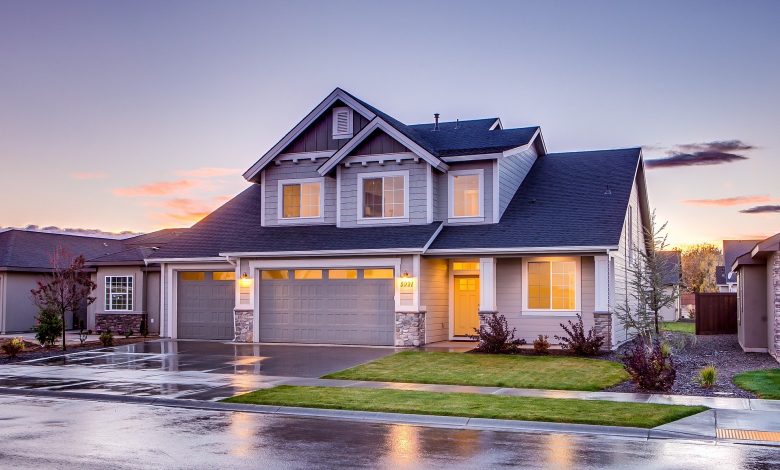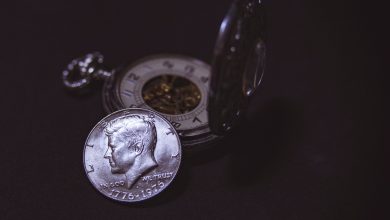What Is a VA Vendee Loan?

You may have heard of the VA Vendee Loan Program and thought it was only for veterans. Or more likely, you had never heard of this type of loan until recently. But a VA Vendee loan is available to veterans and non-veterans alike and allows you to put little to no money down on your house. The catch is that this program is only available on real estate owned (REO) properties.
What Is a Real Estate Owned Property?
If someone defaults on their mortgage and the house goes into foreclosure, the ownership of the home transfers from the original buyer over to the lender that gave them a mortgage. When a house goes into foreclosure, it will eventually be put up for auction. But if no one buys the house at auction, the bank still owes it and must try to sell the property for as much as they can. When this happens, the property becomes known as an REO.
REO properties are often sold at a discount as the bank tries to recoup what they can as fast as possible. However, the homes are often sold “as is,” meaning there is no property inspection contingency, and the bank will not pay for any repairs of major appliances.

When to Use a VA Vendee Loan?
The VA Vendee Loan Program makes real estate owned properties more appealing to buyers through the benefits it offers. Here are some quick facts on VA Vendee loans:
- Investor friendly
- Financing available with little or no money down
- Lower interest rates
- No appraisal required
- Closing costs can be rolled into the loan
- The seller can contribute to closing costs
- 15 or 30-year loan terms
- No prepayment penalties
- No mortgage insurance requirement
Investor Friendly
A VA loan is particularly investor friendly for many reasons. Investors often need to buy a property at the lowest possible price in order for it to be profitable for them to fix the house up and rent or sell it. VA loans offer that option by default, and the nature of VA loans is that the buyer has all the leverage in the negotiation. It is much easier to give the bank a take it or leave it price on a foreclosed house that failed to sell at auction than it would be if buying from a homeowner.
VA Vendee loans are also well-suited for investors because they often have to be fixed up before anyone can live in them. An investor may have been looking to do work to the house regardless of how bad it was inside. In this case, whatever is wrong with the house plays in an investor’s favor, as these problems have lowered the price of the house and could be the reason why the house is available in the first place.
Another investor-friendly aspect of the VA Vendee Loan Program is that any origination or funding fees can be rolled into the loan. For investors, cash is king, and avoiding having to pay those fees upfront is beneficial for business. There is also the fact that sellers can contribute as much as 6% of closing costs, which is more than conventional deals and could be an item an investor negotiates for in the sales contract.
Lastly, a VA loan is helpful for investors by not charging a prepayment penalty. Not all mortgages have a prepayment penalty, but many do. Typically, these penalties will apply if the entire mortgage balance is paid off within a specific number of years, usually three to five. A prepayment penalty is usually 80% of six months worth of interest, which often can equal thousands of dollars.
For example, say an investor buys a home for $100,000 and has a mortgage of $80,000. They then put $100,000 into the house to completely renovate it and then sell the house for $250,000 a year later. Depending on how much they had to borrow for the improvements, it is likely that they will be able to completely pay off the mortgage. And if the house was bought with a VA loan, it could save the investor a few thousand dollars.
But VA Vendee loans are not just for investors. This type of loan can be perfect for anyone that does not have a lot of money for a down payment or simply wants to get a good deal and doesn’t mind making repairs. For those that plan to live in the house, you can purchase a home with a VA loan for zero money down.

VA Vendee Funding Fee and Down Payment
One of the drawbacks of a VA loan is the funding fee requirement. This is a one-time fee, and it goes down the more your down payment is. For first-time VA loan users that are putting less than 5% down, the funding fee is 2.3%.
Suppose you use a VA loan a second time and put less than 5% down, then the fee increases to 3.6%. If you put between 5% and 9.9% down, your fee goes down to 1.65% and stays at 1.65% for your second VA loan—as long as the down payment stays above 5%. By putting down at least 10%, your funding fee goes down to 1.4% for both your first and subsequent uses.
Bottom Line on VA Vendee Loans
VA Vendee loans are ideal for investors or those looking to purchase their first home and don’t want to pay a large down payment. It is much easier to be approved for a VA loan because your credit score is not factored into financing approval. VA loans have competitive interest rates and take many of the hassles of buying a home out of the process, such as mortgage insurance and appraisal costs and contingencies.
While VA Vendee loans can be great options for some people, you have to be willing to deal with many potential fixes before anyone can move in. If you fancy yourself particularly handy or know someone who is, a VA loan allows you to create some serious sweat equity in your home. To find a VA Vendee house in your area, you can search the map here.



